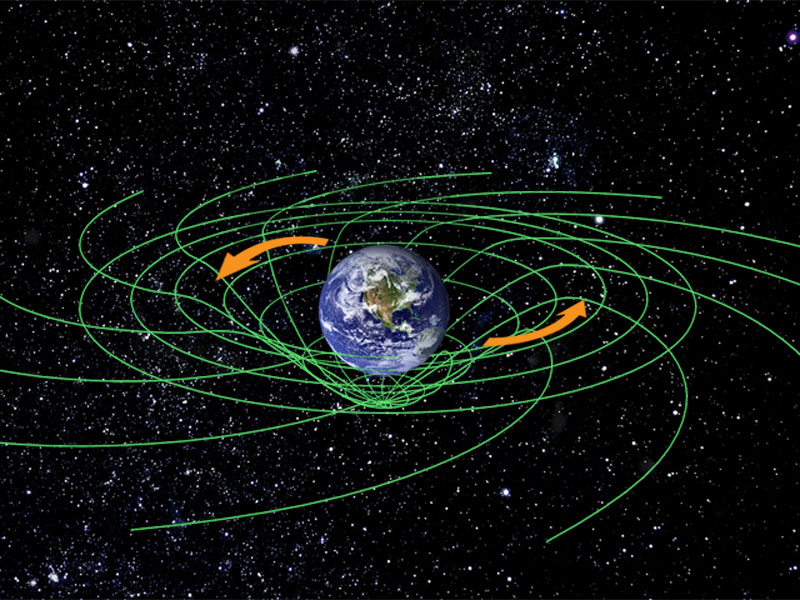
Check out this New York Times article on a debate over the nature of gravity. It's pretty wild stuff.
What's this all about, anyway? Why does it matter how we think about gravity? We understand it perfectly well in our everyday experience, whether we're talking about an apple falling from a tree or a spacecraft going to Saturn. Newton's way of thinking about it was ultimately replaced by Einstein's way of thinking about it, but what difference does it make to us whether we think of gravity as a distortion of spacetime? That doesn't change the way I fall down and scrape my knee.
But scientists are in pursuit of a theory of everything -- one unifying theory that will combine all the known forces (electromagnetic, weak, strong and gravitational) into one super theory. The problem is, our understanding of the very small (quantum mechanics) and the very large (general relativity) are pretty good on their own, but they're a devil to combine. This is where all that weird stuff like string theory and 26 dimensions comes into play. Most of us just glaze over.
But we've already been thinking about these things in "weird" ways. Curvature of spacetime is a good example, because while it is wholly outside of our experience, it's easy enough to grasp. We can visualize stars or planets as sitting on the fabric of space, making indentations that would perturb objects as they come near, like this:

If you imagine a smaller body swooping in within the distortion of the space fabric, its straight path is going to be curved. If it's traveling fast enough, its trajectory will be changed but it will keep flying away, escaping the pull of Earth's mass; but if it's slower, it might be captured by the Earth, spiraling in to impact or becoming a satellite. That's precisely the behavior we observe. But of course, the fabric of space isn't just some giant, invisible trampoline on which everything sits.
In the illustration, we're imagining the fabric of space as a two-dimensional plane, curved or distorted by mass into a third physical dimension (the greater the mass, the greater the distortion). But the universe we experience is obviously 3-dimensional. So by analogy, if we think of our 3-dimensional universe as flat, we can imagine it as curved into a fourth dimension. We can't experience spacetime distortion directly, because we can only experience the world in three dimensions. But we can certainly see the side effects of spacetime distortion, and deduce it (gravitational lensing is another fabulous phenomenon that we can see as result of this strange state of affairs).
Watch Carl Sagan's far more elegant explanation of the fourth dimension here and here.
So when we think about gravity in this way, we can start to understand that all this talk of higher dimensions and wiggling strings is not that much more bizarre, it's really just the next step. Theoretical physics continues to get stranger, but we already know that the universe is a strange place. For instance, we know that time actually slows down on board satellites hurtling around the Earth (as predicted by Einstein), and we've seen peculiar phenomena on the sub-atomic level.
In any case, maybe our way of thinking about gravity is fundamentally flawed in some way. Something's got to give if we're to unify gravity with the electronuclear forces. If we do have it wrong in some way, it won't make any difference in how you fall down and scrape your knee, or visit our neighbors in the solar system. But just as our understanding of quantum mechanics has changed the world forever (think nuclear reactors... and unfortunately, fusion and fission bombs), understanding these forces on a deeper level, as different iterations of the same super theory, could have an enormous impact on our world, and our understanding of the cosmos. And it just might lead to some dazzling breakthroughs, whether it's energy production, interstellar travel, or some other yet-unforeseen technology.
And in the meantime, it's a fun mindbender.
No comments:
Post a Comment